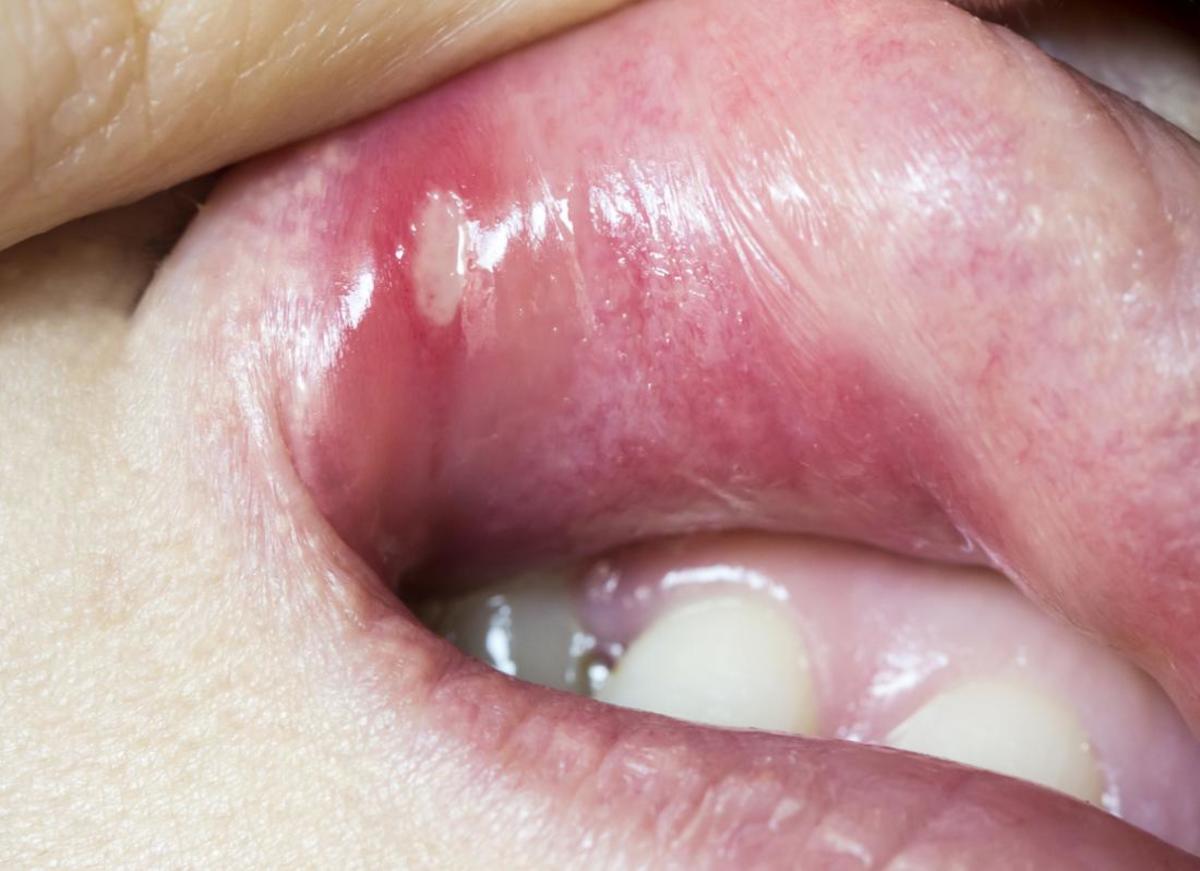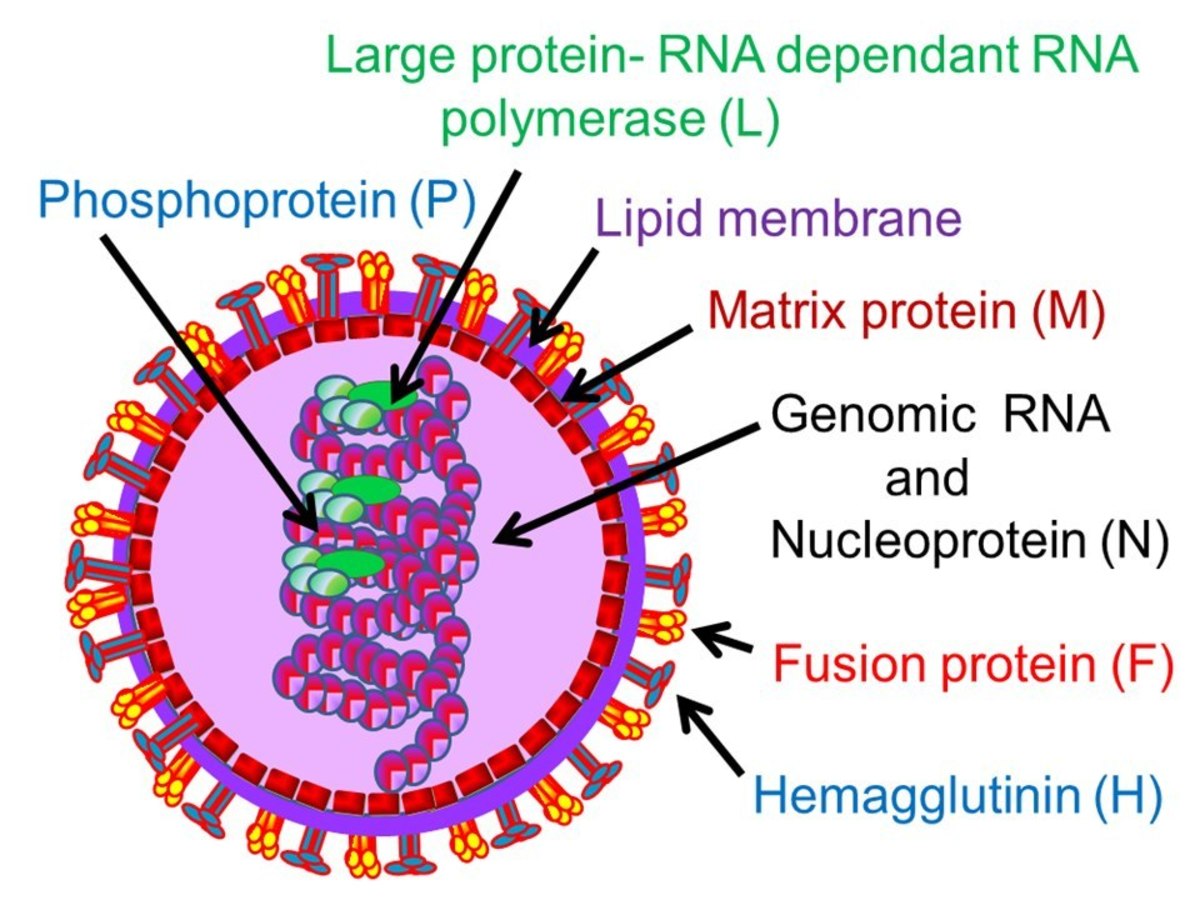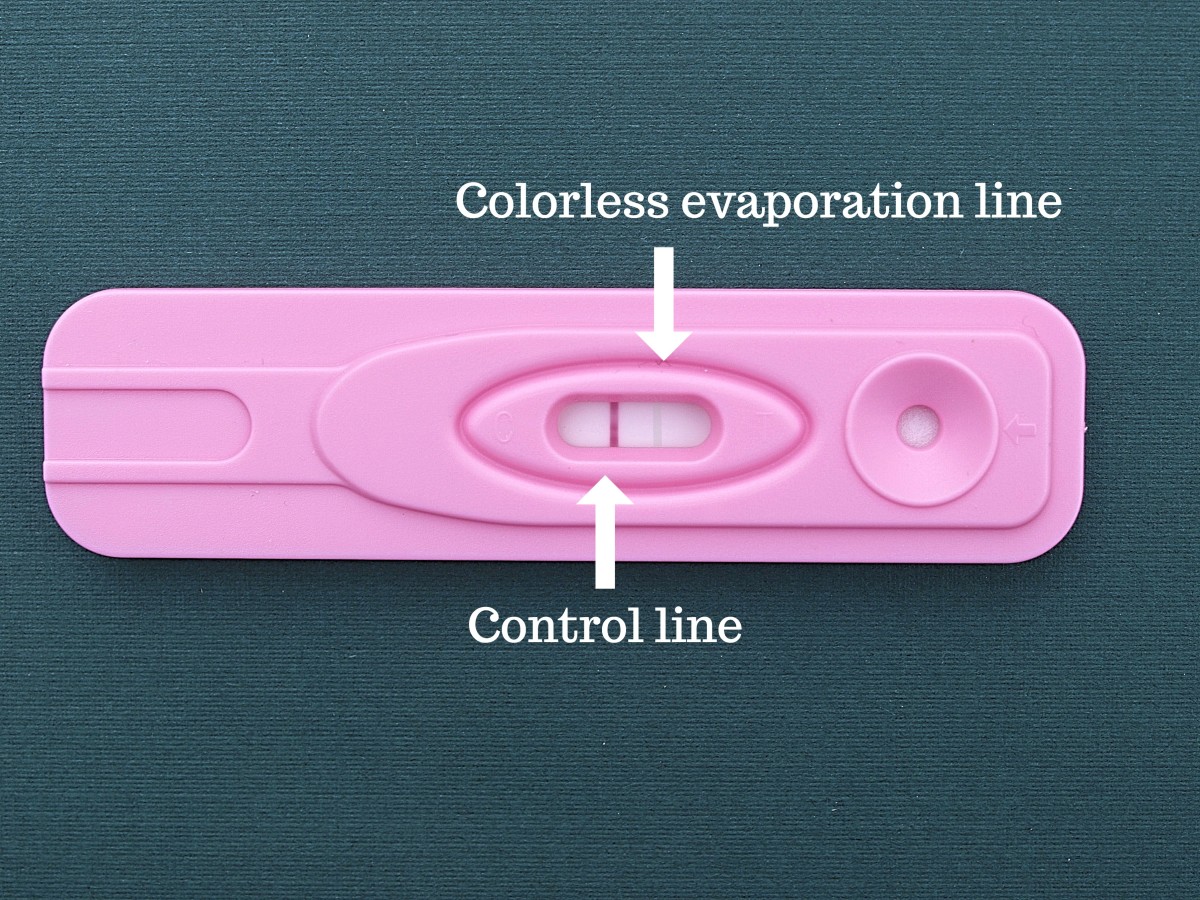- HubPages»
- Health»
- Women's Health»
- Pregnancy
Bacterial and Viral Infections and Miscarriage
Infectious Diseases in Pregnancy

Causes of Miscarriage
Miscarriage is always devastating, and grieving mothers want to know "why did this happen?" In the vast majority of cases, early pregnancy loss is caused by genetic problems with the developing embryo. Chromosomal errors are a leading cause of early miscarriage, particularly if more than one miscarriage has occurred for the same mother.
Autoimmune diseases (such as Lupus) and antiphospholipid antibodies may also cause miscarriage. These conditions, if identified early in the mother, may be treated to prevent future loss.
Low progesterone levels, abnormal uterine anatomy, and environmental toxins (from smoking cigarettes, chemical exposure, etc.) may also cause miscarriage.
Infectious diseases (both bacterial and viral) may also cause the loss of a pregnancy.
CMV in Placental Tissue
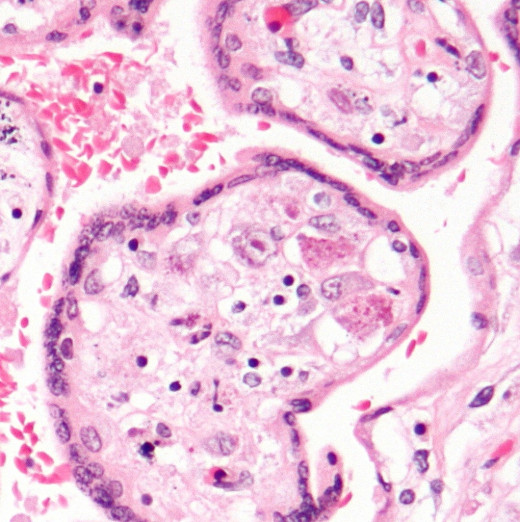
Miscarriage Due to Cytomegalovirus
Cytomegalovirus (CMV) is a common virus - in healthy adults and children, it produces flu-like symptoms with no lasting damage. Unfortunately, the damage CMV wreaks on a developing baby can lead to many health issues, or even fetal death. Approximately half of all pregnant women have antibodies to this virus circulating in their bloodstream - this reduces the chance they will contract this devastating virus during pregnancy.
Preventing CMV Infection:
There is currently no vaccination for cytomegalovirus (a vaccine by Sanofi Pasteur is under development), so avoiding those who have flu-like symptoms. Daycare centers and other facilities with large numbers of young children are CMV hotbeds - pregnant women should be extremely careful to wash their hands frequently and try to prevent infection if they work at a preschool or are in frequent contact with large groups of youngsters. CMV is transmitted by body fluids, and hand-washing is a very effective tool against the virus.
What CMV Does to a Developing Baby:
Cytomegalovirus usually causes a congenital infection, with devastating consequences. Deafness, blindness, global developmental delays, microcephaly, and seizures may result from a CMV infection in the womb. Sometimes, the damage caused by the virus results in miscarriage.
Toxoplasmosis, Cats, and Pregnant Women
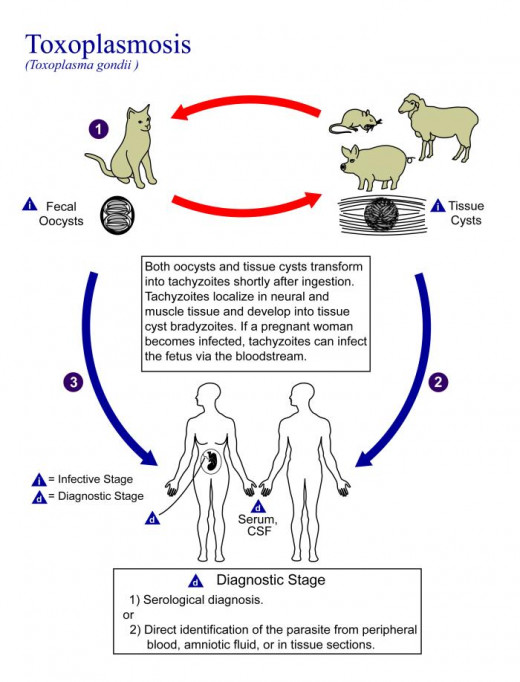
Toxoplasmosis in Pregnancy
Along with Cytomegalovirus, Toxoplasmosis is part of a group of pathogens known as the TORCH complex (Toxomplasmosis, Other infections, Rubella, Cytomegalovirus, and Herpes Simplex-2). Pregnant women are advised from changing the cat litter for a good reason: cats often carry the parasite's eggs and excrete them in their feces.
Toxoplasmosis causes symptoms similar to mild mononucleosis in most adults, though an infection with Toxoplasma gondii causes severe problems in a developing baby (and frequently causes fetal death).
Preventing Toxoplasmosis:
Since Toxoplasma gondii is a parasite (protozoa), vaccines are not effective. Infection with this parasite can be entirely avoided by:
- Washing your hands after gardening or handling raw meat.
- Staying away from cat litter boxes.
- Cooking lamb, pork, and beef thoroughly.
What Toxomplasmosis Does to a Developing Baby:
Toxomplasmosis can cause deafness, seizures, brain damage, blindness, intrauterine growth restriction, and other severe health problems in a fetus. Infection may result in fetal death.
Treatment for Toxoplasmosis:
If an infection is identified in a pregnant mother, a drug called Spyramicin will cure the infection in the mother. A combination of drugs (pyrimethamine and sulfadiazine) can be given to the mother to treat the infected fetus.
Toxoplasmosis in Pregnancy
Rubella in Pregnancy
In 1964-1965, the largest rubella epidemic in U.S. history struck the nation. 20,000 cases were reported that year, and pregnant mothers were hit hard by the virus. Rubella in pregnancy causes deafness, cataracts in the eyes, heart disease, enlarged liver, and other severe birth defects. The virus may also cause miscarriage.
Fortunately, cases of Rubella are extremely low due to the use of the Measles, Mumps, and Rubella vaccination. Most adult women and children are vaccinated against Rubella. Since there is no cure for Congenital Rubella Syndrome, the best course of action is prevention.
All women should be vaccinated for Rubella prior to becoming pregnant.
HSV-2 in Cervical Cells
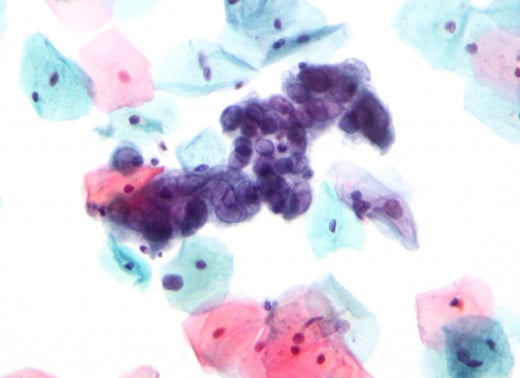
Herpes Simplex Virus-2
Herpes Simplex Virus-2 (HSV-2) is a sexually transmitted disease. Adults may not show symptoms of infection, or may have painful, red blisters on the genitalia and a mild fever. Swollen lymph glands and painful urination may also be observed.
HSV-2 can cause premature labor and miscarriage in pregnant women. Most cases of neonatal herpes are caused by exposure to the lesions during the birth process, though some cases are caused prenatally. If prenatal herpes infection occurs, the fetus may have disseminated herpes (DIS herpes - where the virus attacks the liver and other internal organs) or central nervous system herpes (CNS). In CNS herpes, the infection attacks the baby's brain and nervous system. This causes seizures, a bulging soft spot, and an inability to feed well. Both DIS and CNS herpes infection can kill a fetus.
Preventing HSV-2 Infection:
Avoid sexual contact with an infected partner, and seek treatment immediately if there are any signs of active infection.
Treatment of HSV-2 Infection:
Two antiviral drugs, acyclovir and vidarabine, are used to treat neonatal herpes infection in a pregnant mother. A Caesarian section will be recommended to prevent transmission of the virus from the mother to the baby at birth.
Chlamydia and Other Sexually Transmitted Diseases
Chlamydia is known to cause miscarriage, along with other sexually transmitted diseases. Chlamydia is a bacterial disease that causes painful urination and discharge. The disease is treatable with antibiotics, and pregnant mothers who show any symptoms of the disease should contact a doctor immediately to obtain treatment.
Syphilis and Gonorrhea cause similar problems to the developing baby, and should be treated early. Most obstetrician's offices will follow the Centers for Disease Control guidelines and screen pregnant women for these diseases at the first prenatal appointment.
Fifth Disease in Children
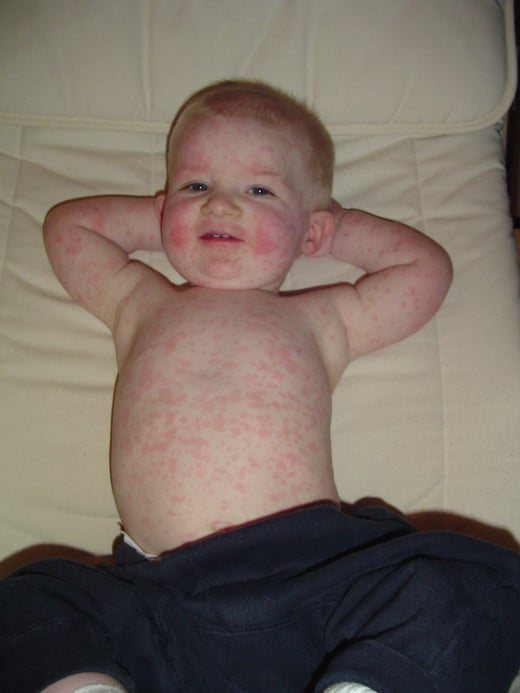
Fifth Disease (Parvovirus)
Parvovirus B-19 is commonly called "Fifth Disease." This virus causes a rash and fever in infected children and adults, though approximately half of all pregnant women are immune to the virus. For those women who contract the disease while pregnant, most cases are mild and the developing baby is fine. Occasionally, Fifth Disease will cause severe anemia in a developing baby and can cause miscarriage.
Children who have Fifth Disease will have a fever and a lacy red rash. Their cheeks will appear bright red, giving this name its other moniker: "Slapped Cheek Disease." Children who have these symptoms should not attend daycare or school, and pregnant women should avoid contact with any child who has a rash and a fever.
A blood test is available to detect immunity to this virus. For pregnant women who are not immune to Parvovirus, it is wise to avoid those who are actively infected. This may mean staying home from work if a coworker or child at a daycare center is infected.
Avoid Brie in Pregnancy

Listeria in Pregnancy
Soft cheeses, unpasteurized milk, and uncooked meat are not recommended in pregnancy due to the possibility of contamination by a bacteria called Listeria monocytogenes. This bacteria lives in soil and water, and has been found in "raw milk," dairy products made from unpasteurized milk, and in processed meats like hot dogs.
Symptoms of Listeriosis:
Listeriosis will cause mild flu-like symptoms. Occasionally, the viral infection spreads to the brain and nervous system and will cause seizures and other neurological problems.
Listeria Prevention:
- Thoroughly cook "cured" meats like hot dogs. Avoid lunchmeat, as it may contain Listeria.
- Avoid feta, brie, and other soft cheeses.
- Drink only pasteurized milk.
- Thoroughly cook all meat and seafood (avoid Sushi).
What Listeria Does to a Developing Baby:
Listeria is extremely hazardous in all trimesters of pregnancy. Miscarriage often results from first and second trimester infections, and babies infected in the last trimester may be stillborn or death in the newborn period.
Listeria Treatment:
If an infection with Listeria is detected early, antibiotics may be given to protect the baby in the womb.
Food Safety in Pregnancy
Food in Pregnancy: A Poll
Do you avoid dangerous food choices in pregnancy?
Chorioamnionitis
Usually caused by a prolonged labor that results in a bacterial infection that travels from the vagina to the membranes surrounding the baby, chorioamnionitis may also occur at an earlier pregnancy stage. The type of bacteria that causes this infection will vary, but cases of bacterial vaginosis, e. coli, and group B strep have all been indicated.
Chorioamnioitis will often cause premature delivery and may result in miscarriage or stillbirth. Regular vaginal cultures and prompt treatment with antibiotics may prevent early labor from occurring. If the mother is near term, the baby may be delivered and given antibiotics to prevent sepsis.
© 2012 Leah Lefler



